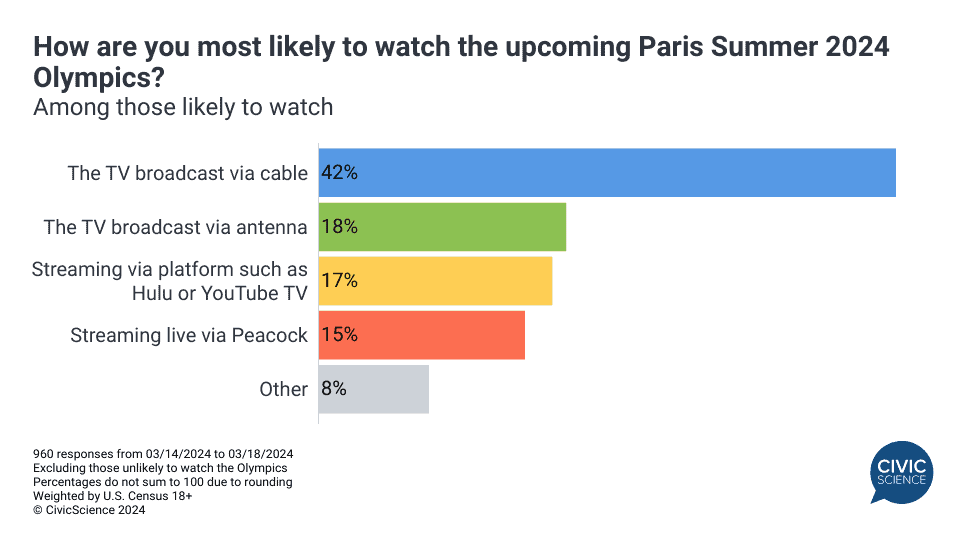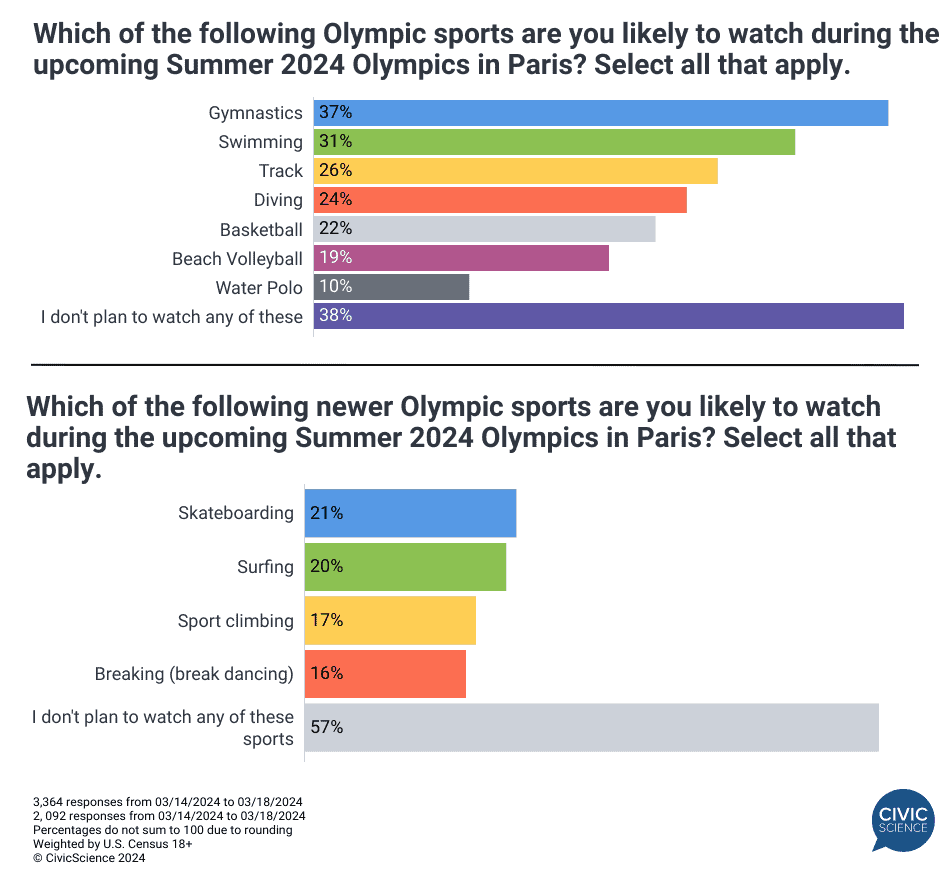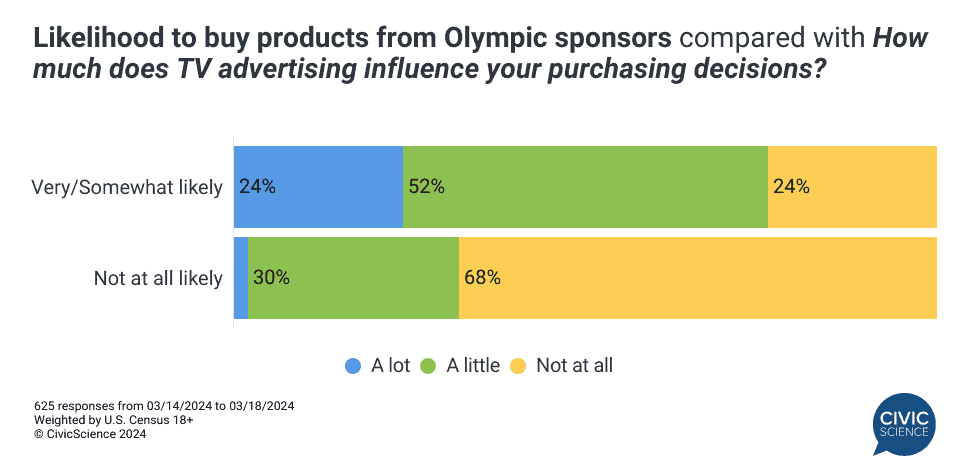In just over four months, the Summer Olympics in Paris will commence, drawing global attention. Here’s an early look at consumer intent as the world prepares to send its best athletes to France this summer:
Nearly half of Americans plan to follow the Olympics this year.
Fresh CivicScience polling data show 49% of U.S. adults say they plan to follow the Paris Olympics at least ‘somewhat’ closely, including 14% who report they’ll follow the games ‘very’ closely. The likely audience skews younger – Gen Z adults and Millennials are each at least 11 percentage points more likely to follow the games than Gen X and Baby Boomers.
There are several avenues available for those eager to tune into the games, with Peacock being a particularly notable option. New for this year, Peacock will stream every single event of the games live, without having to worry about the delay of the six-hour time difference from the Eastern time zone – an option that 15% report they’ll be taking advantage of. While the largest portion of viewers plan to stick with traditional cable TV, 18% will be tuning in via antenna broadcast. Furthermore, 17% will look to streaming platforms such as YouTubeTV or Hulu to catch the action.

Antennas are a reviving trend that this data show should not be ignored. Unlike streamers, there is a lack of real-time data coverage on demographics, viewing habits, and brand preferences of these TV antenna viewers. The new CivicScience Over-the-Air Audience Tracker provides adoption rates and an in-depth analysis of these consumers’ psychographics, attitudes, and behaviors. Click here to learn more.
Join the Conversation: Which do you prefer to watch — the Summer Olympics, or the Winter Olympics?
Gymnastics, swimming, and skateboarding are primed to take center stage.
What will Americans be watching for when they flip on the games this summer? Additional CivicScience data show the vast majority of those who typically watch the Olympics (77%) say they do so to follow specific events rather than a particular athlete (23%). Of some of the most noteworthy events, gymnastics, track, and swimming appear to have the early advantage in viewership preferences.
The Olympics this year will also feature a return of newer sports like sports climbing, skateboarding, and surfing while breaking (break dancing) will make its Olympic debut. Among these recent additions to the games, skateboarding emerges as the likely frontrunner in attracting viewership, narrowly beating out surfing.

Olympic sponsors garner consumer attention.
Olympic sponsorships will gross into the billions of dollars for Team USA thanks to long-term deals for Paris and the 2028 Olympics in Los Angeles. With such high-value deals in place, how much will these sponsorships resonate with Olympic audiences?
As many as one-third of Americans say they’re at least ‘somewhat’ likely to purchase products from an Olympic sponsor, including 8% who would be ‘very’ likely to do so. Being a sponsor may also provide a way to reach consumers who aren’t normally influenced by TV advertising – 24% of those likely to buy from an Olympic sponsor say TV ads don’t influence their purchasing decisions at all.

The 2020 Summer Olympics in Tokyo were heavily impacted by the pandemic, with the games delayed to 2021 and played without crowds; viewership suffered. The outlook for a rebound in the Paris games already looks promising, with millions of tickets sold. With early viewership intent for Paris looking better than Tokyo, sponsors appear likely to have the opportunity to reach a wider audience than previous Olympics – can they capitalize?
Weigh-In: Will you make it a point to watch all or part of the Olympics this summer?
Attitudes change before behaviors do. For forward-looking insights into how your brand’s target audiences approach sports and advertising, contact CivicScience today.








